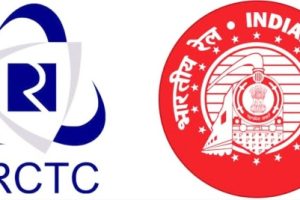Section 80G of the Income-tax Act, 1961 allows taxpayers to claim deductions for their monetary donations to eligible charitable institutions. However, claiming this deduction while filing income tax return (ITR) can be tricky. Therefore, it is essential for taxpayers to keep some key points in mind while claiming this deduction at the time of filing their ITR.
Section 80G deduction is allowed from gross total income
Tax liability is computed on the net taxable income (also termed as total income) of the taxpayer. The net taxable income is calculated by subtracting the deductions that the taxpayer is eligible for, from his/her gross total income (GTI). The deduction under Section 80G must be subtracted from the GTI to determine the taxpayer’s net taxable income. The GTI is arrived at by adding income from all sources of income, such as salary, dividend income, capital gains, interest income, rental income etc. It is crucial to note that if there is no GTI, then no deduction will be permissible under Section 80G.
Amount of Section 80G deduction
Taxpayers can claim deductions on their donations, ranging from 50% to 100% of the amount donated. Donations to certain institutions qualify for a full deduction of either 100% or 50%, without any qualifying limit. However, in some cases, the deduction is limited to 10% of the taxpayer’s adjusted GTI.
There are four categories of deductions under Section 80G. Therefore, it is crucial to check the category of the fund or charitable institution to determine the permissible deduction percentage (either 100% or 50%), and whether there is a maximum or qualifying limit on the deduction amount (in addition to the permissible deduction percentage).
Deduction amount cannot exceed GTI
Section 80G deduction is limited to the GTI you have earned. If your GTI is zero or negative, you will not be able to claim the deduction. This implies that Section 80G deductions cannot lead to negative figures or losses that can be carried forward to the subsequent year.
Notably, the deduction under Section 80G is only applicable if the assessee has a source of income. This deduction is not available in case of losses, and the benefits under Section 80G cannot be carried forward.
Mode of donations
To claim a deduction under Section 80G, the donation must be in the form of money. Donations made in kind, such as goods or services, are not eligible for the deduction. The deduction can only be claimed for donations made via cash, cheque, or electronic transfer. Additionally, it is essential to note that donations made in cash exceeding Rs. 2,000 will not be eligible for the deduction under Section 80G.
Documents to claim a deduction
To claim your deduction under Section 80G, it is crucial to have the donation receipt and the donation certificate in Form 10BE readily available. During the ITR filing process, you will need to provide the details mentioned in the donation receipt and donation certificate, so ensure that you have it handy.
You can obtain Form 10BE from the institution or NGO that received your donation. This certificate serves as concrete evidence to support your claim for the deduction. Verifying that the actual donation amount matches the information provided in Form 10BE before submitting your tax return is important. In the event of any discrepancy, it is recommended to request a revised and updated Form 10BE certificate from the donee institution.
Furthermore, it is essential to note that Form 10BE must be downloaded from the income tax portal and not created manually by the institution or NGO. The donation certificate will come with the Income Tax Department logo and watermark, which will help you identify that Form 10BE is downloaded from the income tax department’s e-filing portal…. Read More
Source By: economictimes
Section 80G of the Income-tax Act, 1961 allows taxpayers to claim deductions for their monetary donations to eligible charitable institutions. However, claiming this deduction while filing income tax return (ITR) can be tricky. Therefore, it is essential for taxpayers to keep some key points in mind while claiming this deduction at the time of filing their ITR.
Section 80G deduction is allowed from gross total income
Tax liability is computed on the net taxable income (also termed as total income) of the taxpayer. The net taxable income is calculated by subtracting the deductions that the taxpayer is eligible for, from his/her gross total income (GTI). The deduction under Section 80G must be subtracted from the GTI to determine the taxpayer’s net taxable income. The GTI is arrived at by adding income from all sources of income, such as salary, dividend income, capital gains, interest income, rental income etc. It is crucial to note that if there is no GTI, then no deduction will be permissible under Section 80G.
Amount of Section 80G deduction
Taxpayers can claim deductions on their donations, ranging from 50% to 100% of the amount donated. Donations to certain institutions qualify for a full deduction of either 100% or 50%, without any qualifying limit. However, in some cases, the deduction is limited to 10% of the taxpayer’s adjusted GTI.
There are four categories of deductions under Section 80G. Therefore, it is crucial to check the category of the fund or charitable institution to determine the permissible deduction percentage (either 100% or 50%), and whether there is a maximum or qualifying limit on the deduction amount (in addition to the permissible deduction percentage).
Deduction amount cannot exceed GTI
Section 80G deduction is limited to the GTI you have earned. If your GTI is zero or negative, you will not be able to claim the deduction. This implies that Section 80G deductions cannot lead to negative figures or losses that can be carried forward to the subsequent year.
Notably, the deduction under Section 80G is only applicable if the assessee has a source of income. This deduction is not available in case of losses, and the benefits under Section 80G cannot be carried forward.
Mode of donations
To claim a deduction under Section 80G, the donation must be in the form of money. Donations made in kind, such as goods or services, are not eligible for the deduction. The deduction can only be claimed for donations made via cash, cheque, or electronic transfer. Additionally, it is essential to note that donations made in cash exceeding Rs. 2,000 will not be eligible for the deduction under Section 80G.
Documents to claim a deduction
To claim your deduction under Section 80G, it is crucial to have the donation receipt and the donation certificate in Form 10BE readily available. During the ITR filing process, you will need to provide the details mentioned in the donation receipt and donation certificate, so ensure that you have it handy.
You can obtain Form 10BE from the institution or NGO that received your donation. This certificate serves as concrete evidence to support your claim for the deduction. Verifying that the actual donation amount matches the information provided in Form 10BE before submitting your tax return is important. In the event of any discrepancy, it is recommended to request a revised and updated Form 10BE certificate from the donee institution.
Furthermore, it is essential to note that Form 10BE must be downloaded from the income tax portal and not created manually by the institution or NGO. The donation certificate will come with the Income Tax Department logo and watermark, which will help you identify that Form 10BE is downloaded from the income tax department’s e-filing portal…. Read More
Source By: economictimes










